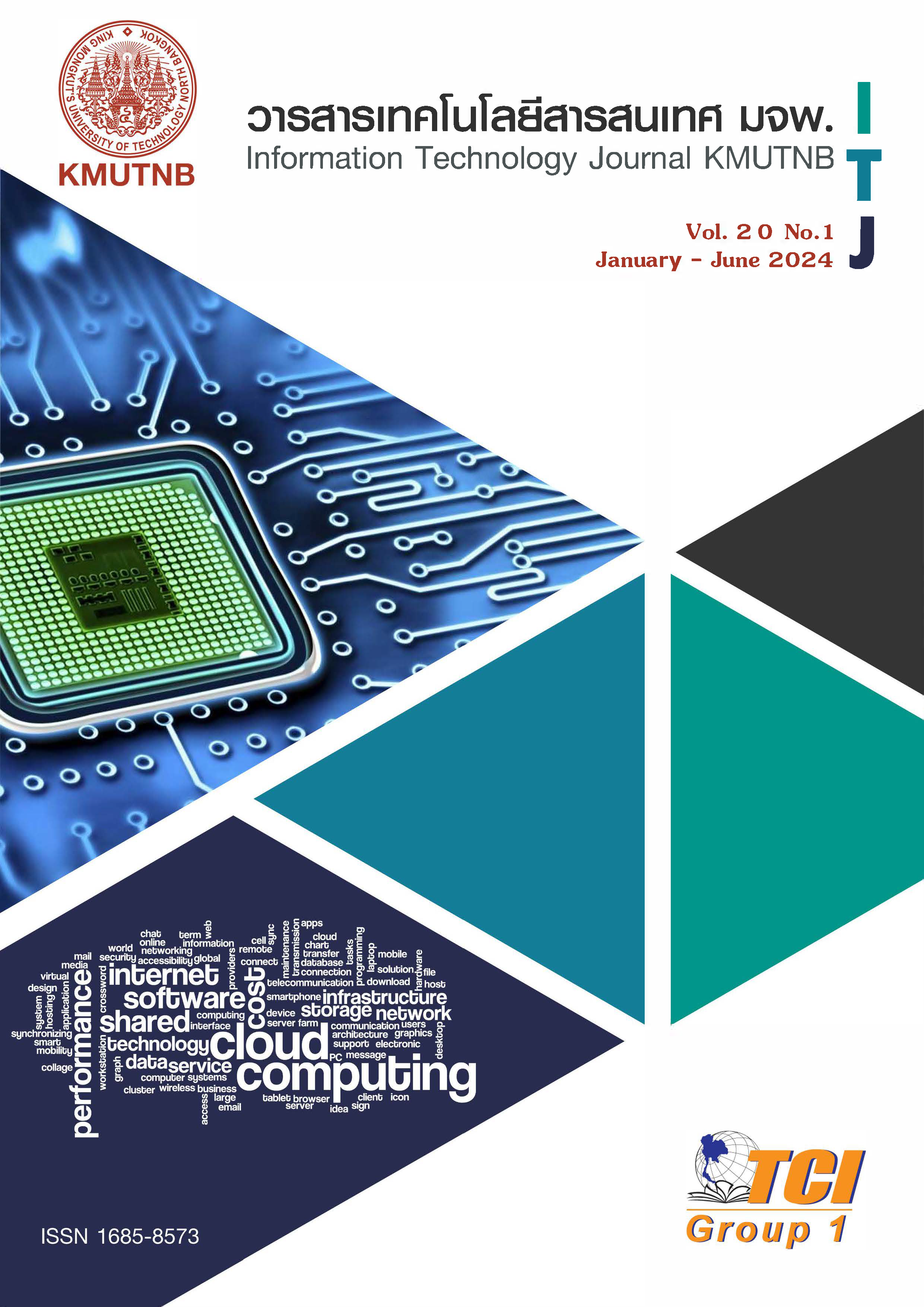Design and Development of Educational Digital Game of Water Cycle for Elementary School Student using Scratch 3.0
Main Article Content
Abstract
The objectives of this research are as follows: 1) to develop an educational digital game implemented water cycle content belonging to science curriculum for Thai elementary school students, 2) to determine the effectiveness of the water cycle educational digital game, 3) to compare pre-test and post-test learning achievement with this water cycle educational digital game, and 4) to study the satisfaction of students towards the water cycle educational digital game. and 5) to compare pre-test and post-test learning achievement with this water cycle educational digital game. The sample group used in this research is 45 students of the fifth grade (the 2nd semester of 2022) from Banjombung school, Ratchaburi province, Thailand. The process in developing our water cycle educational digital game comprises the steps as follows: 1) game analysis, 2) game design, 3) game development, and 4) game testing, based on the rapid application development (RAD) approach to obtain quality game within the time limit. Our developed game has been evaluated by five experts in science education and technology for the determination of effectiveness of our educational digital game based on white-box and black-box testing techniques. The obtained water cycle educational digital game is composed of eight parts, which are: 1) game starting, 2) gameplay suggestion, 3) player naming, 4) game maps, 5) water cycle contents, 6) playing, 7) testing of the water cycle content learning, and 8) score conclusion. The developed game consists of five stages related to the water cycle content, which are: 1) terrestrial evaporation, 2) oceanic evaporation, 3) condensation, 4) precipitation, and 5) steam flow. The evaluation results from five experts indicate that the overall effectiveness of our game is in the highest level. The students’ satisfaction towards the water cycle educational digital game is in the high level.
Article Details
References
P. Saitong, W. Jantarajaturapat, and S. Papirom. "DIGITAL GAME DESIGN." Santapol College Academic Journal, Vol. 7, No. 2, pp. 217-228, July-December, 2021.
N. Wannatrong, P. Longpradi, W. Chimple, and C. Lanchwatthanakorn. "Development a Design Prototype of Game to Promote Thai Traditions and Cultures." Kasalongkham Research Journal Chiangrai Raijabhat University, Vol. 10, No. 1, pp. 39-49, January-June, 2016.
G. Sriharee. "Software engineering perspective on digital game-based learning for Thailand education 4.0." The Journal of King Mongkut's University of Technology North Bangkok, Vol. 28, No. 2, pp. 477-488, April-June, 2018.
D. Kiengkam. Sprite costums. in Scratch 3, IDEPREMIER, Bangkok, 2020.
J.J. López-Jiménez, J.L. Fernández-Alemán, J.A. García-Berná, L. López González, O. González Sequeros, J. Nicolás Ros, J.M. Carrillo de Gea, A. Idri, and A. Toval. "Effects of Gamification on the Benefits of Student Response Systems in Learning of Human Anatomy: Three Experimental Studies." International Journal of Environmental Research and Public Health, Vol. 18, No. 24, 2021.
P. Jomsri, D. Prangchumpol, and B. Eaimtanakul. "Apply Gamification-Based for UI of M-learning to Support the NewNormal Life: ACase Study of Human Computer Interaction Course." Journal of Academic Information and Technology, Vol. 3, No. 2, pp. 17-28, July-December, 2022.
B. Narin, T. Sribun, and T. Yoongrum. "Development of Fun Hint Game Applications for Special Children on Smart Devices." 2019 14th International Joint Symposium on Artificial Intelligence and Natural Language Processing (iSAI-NLP), 2019.
M.-T. Cheng, T. Su, W.-Y. Huang, and J.-H. Chen. "An educational game for learning human immunology: What do students learn and how do they perceive?." British Journal of Educational Technology, Vol. 45, No.5, pp.820–833. doi:10.1111/bjet.12098, 2013.
S. Prakobpon. "Evaluation of Educational Innovation in Education 4.0." Journal of Educational Studies, Vol. 12, No. 2, pp. 295-311, July-December, 2020.


